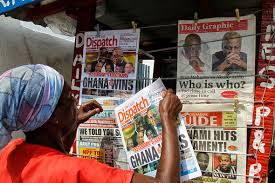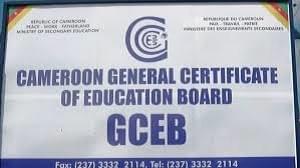The report that more than 500 delegates from 100 countries will converge on Accra in April this year for the 53rd World Trade Centres Association (WTCA) General Assembly is one of the leading stories in the Ghanaian press on Monday.The Graphic reports that more than 500 delegates from 100 countries will converge on Accra in April this year for the 53rd World Trade Centres Association (WTCA) General Assembly.
The 53rd WTCA General Assembly, which will be held in Accra from April 23 to 28, will be the first to be hosted in Africa in the over 50-year history of the WTCA, a global network of 300 business organisations in more than 100 countries.
The global event is expected to be one of the biggest gatherings of business executives, investors, financial institutions, international trade organisations, policy makers and entrepreneurs on the African continent.
On the theme: “Towards African Economic Integration and Enhanced Global Presence”, the assembly will foster global collaborations among the various WTCs, as well as create trade and investment opportunities for businesses and countries.
At the media launch of the 53rd WTCA General Assembly in Accra last Wednesday, the Executive Chairman of the WTC, Accra, Togbe Afede XIV, said the event was a great opportunity for African countries to enhance economic partnerships among themselves and other countries.
He said it was unfortunate that in spite of the fact that Africa controlled about 60 per cent of the world’s arable land and 30 per cent of the known mineral deposits, the continent could only boast less than five per cent of global trade and gross domestic product (GDP).
He said the African Continental Free Trade Area (AfCFTA) was created because of the difficulties African countries faced in trading effectively among themselves and delivering value.
“AfCFTA is the single largest customs-free trading area in the world and it presents the world with an amalgamated African market worth more than three trillion dollars in GDP. The AfCFTA single market will grow to have 1.7 billion people in 2030, with consumer spending in excess of $6.7 billion,” he said.
The newspaper says that the Minister of Finance, Ken Ofori-Atta, will present a policy brief on the domestic debt exchange programme (DDEP) to Parliament on Thursday, February 16, 2023.
The briefing is pursuant to the Speaker’s directive to the Business Committee last Tuesday to programme the minister to appear and brief members of the House on the DDEP.
The Deputy Majority Leader, Alexander Afenyo-Markin, who made this known to Parliament today said the leadership of the House had engaged him.
“The minister, in his response, indicated that he had committed to an earlier engagement on behalf of the government on the said Tuesday,” he told the House.
Mr Afenyo-Markin disclosed this when he presented the business statement for the next week ending Friday, February 17, 2023
The minister was initially to have been scheduled by the Business Committee to appear before the House on Tuesday, February 14, 2023.
The Speaker of Parliament, Alban Sumana Kingsford Bagbin, last Tuesday directed the Business Committee to schedule the Finance Minister to appear before the House to brief members on affairs of the DDEP.
He said the briefing was necessary since Parliament was ever prepared to assist the government to get out of that “quagmire”.
“This is a very urgent matter particularly dealing with elderly people; if pensioners are picketing at the Finance Ministry, we need to do this as quickly as possible,” the Speaker said.
The Ghanaian Times reports that the Minister of Sanitation and Water Resources, Mrs Cecilia Abena Dapaah, says the government has so far invested close to $1 billion to facilitate the provision of sustainable water and sanitation needs across the country.
She said the government did so by deploying a Public Private Partnership (PPP) approach in tackling the rising demand for water and sanitation needs over the years.
According to a statement issued by the ministry and copied to the Ghanaian Times in Accra yesterday, Mrs Dapaah said this when the Executive Secretary of the African Ministers’ Council on Water (AM¬COW), Dr Rashid Mbaziira, paid a courtesy call on her in Accra last Friday.
She noted that the deployment of the PPP approach led to the provision of Integrated Compost and Recycling Plants, Wastewater Treatment Plants, Condominium Sewers, Water intake and treatment plants.
She said that AMCOW was the future of water in Africa as through its summits, African commitment to ensuring the provision of sustainable water solutions to her citizens were renewed.
“The country is open to new proposals and inputs in tapping into Ghana’s 53.2 billion m3 Renewable Water Resources,” she added.
Following the reviewing of the National Sanitation Policy, with focus on open defecation, the Minister of Sanitation and Water Resources indicated that the ministry was fully committed to supporting the activities of AMCOW through data sharing with sister countries for the collective good of Africa.
Mrs Dapaah said it was important to mobilise high-level political buy-in and commitment for the roadmap to formulate the post-2025 Africa Water Vision in implementing continental and global commitments on water and sanitation.
The newspaper says that the Director of Research at the Institute of Economic Affairs (IEA), Dr John Kwakye, has stated that the Bank of Ghana’s justification of its financing of the government’s budget in 2022 cannot justify the scale of lending to the government.
According to him, the Central Bank could provide temporary advances to the government but should be repaid within three months per the BoG’s Act.
The Bank of Ghana, in a statement issued last week, justified the financing of the government’s 2022 budget with about GH¢44.5 billion.
It said financing the government was part of a crisis management tool used in dealing with the difficulties of 2022.
“It must be recognised that the ongoing debt operations are part of the corrective measures designed to address the financing problem of the budget. Bank of Ghana financing was part of a crisis management tool used in dealing with the difficulties of 2022,” it said.
Against this backdrop, the details of the Bank of Ghana’s claims on government as of December 2022 were GH¢7.2 billion, representing its purchase of treasury bonds from banks to provide them with liquidity to enable them to meet their obligation to customers and GH¢8.9 billion, representing on-lending facilities granted by the International Monetary Fund (IMF) for onward lending to government.
“It will be important to recall the circumstances under which the Government of Ghana decided to seek IMF support. Ghana has lost access to the International Capital Market, and domestic revenue was significantly underperforming and not realised, pushing the state of government finances into near external and domestic default. With the above, the policy choices were not that of business as usual but rather a more challenged conduct of macroeconomic policy in the context of crisis”.
But in a tweet, Dr Kwakye said lending GH¢44 billion far exceeded the GH¢3.5 billion ceiling.
“Lending ¢44 billion in 2022 far exceeded the GH¢3.5 billion ceilings”.
“BoG’s rejoinder cannot justify the scale of their lending to the government. The Bank can provide temporary advances to the government. But they should be limited and repayable within three months per the Bank’s Act”, it added.




